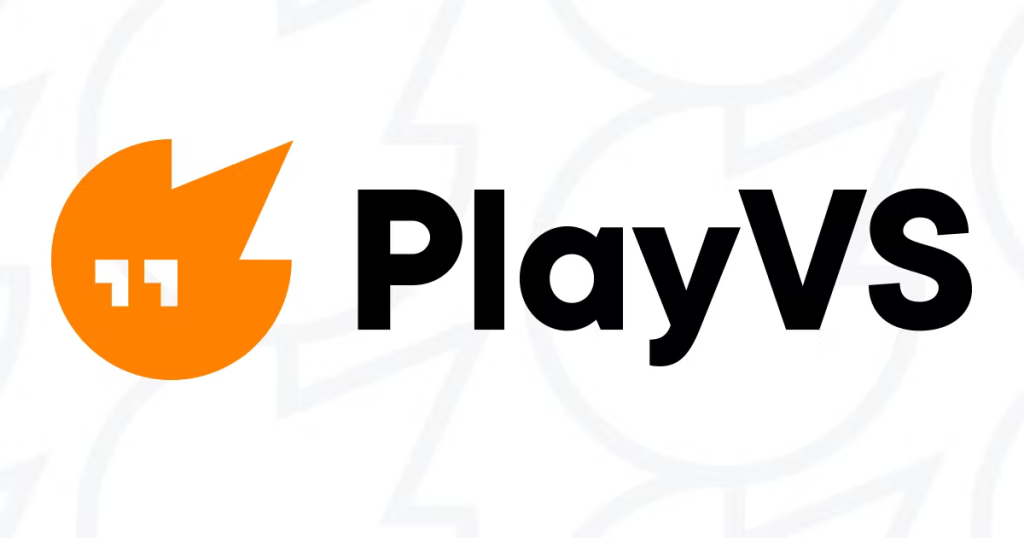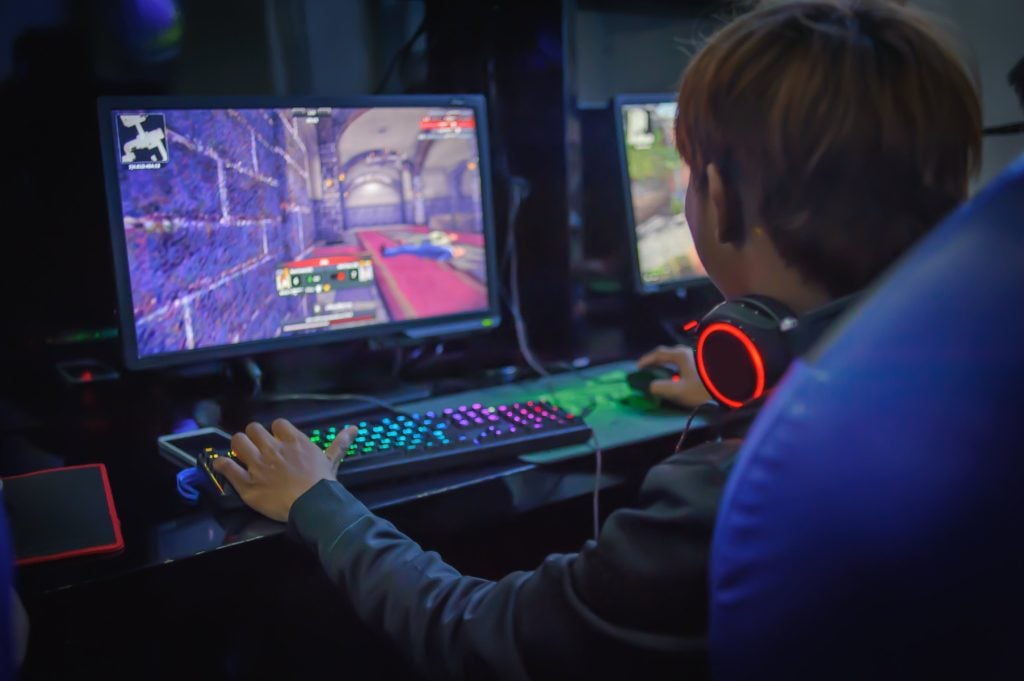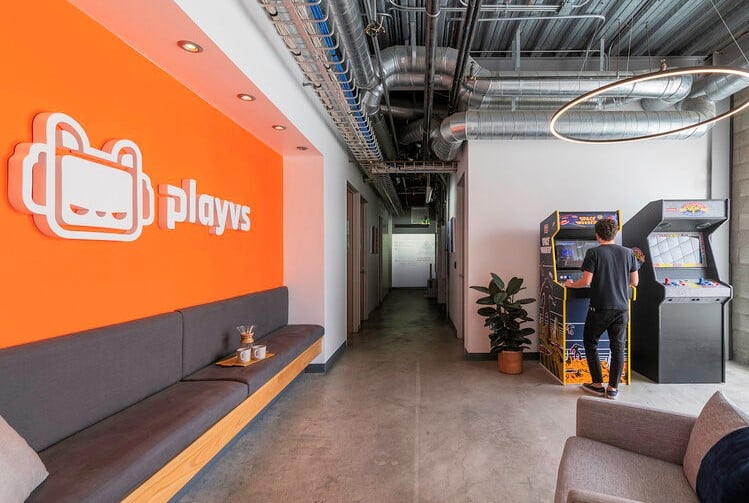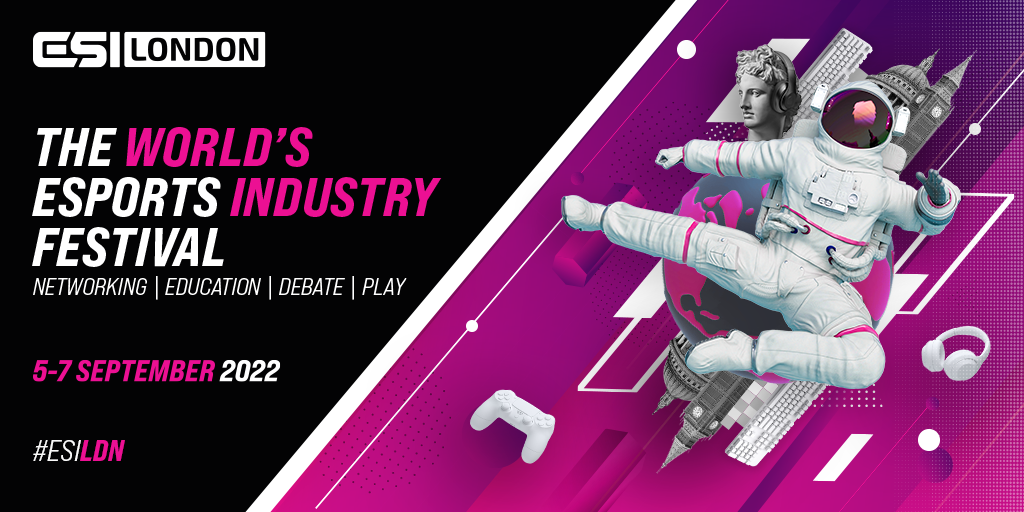
North American high school esports platform PlayVS has faced widespread criticism amongst educators after using supposed exclusivity deals with game publishers to shut out competitors — including some nonprofit institutions — from the high school esports scene.
PlayVS faces allegations that the company, which has raised over $107m (~£89m) to date, has been misrepresenting its partnerships and stifling grassroots high school esports as it vies for a monopoly in the market, according to a broad array of individuals interviewed by Esports Insider.
The drawn-out saga seems far from over, with criticisms of PlayVS’ behaviour having come to light through various media reports over the last several months. Back in March, Upcomer first highlighted the ramifications of PlayVS’ exclusivity deals for the high school scene.
In April, the Jacob Wolf Report reported that the company allegedly misled its partner Epic Games and that an ex-employee was suing the company for discrimination and wrongful termination. Later that month, the Washington Post reported that both Activision Blizzard and Nintendo had distanced themselves from, or denied, PlayVS’ claims to have exclusive partnerships with both publishers.
Following the resulting community backlash, in early June, Riot Games announced an update to its scholastic and community guidelines that effectively ended any exclusivity deal Riot would have had with PlayVS, due to what it called “feedback from across the scholastic esports community.”
Esports Insider has spoken to educators, coaches, and high school esports stakeholders over the last several months as part of an investigation into the company’s actions in the scene. Together, they paint a picture of uncompetitive business practices, encompassing claims and confused messaging regarding exclusivity, allegations of a product which is not fit for purpose, and obstructing the use of esports as a tool for education in pursuit of commercial growth.
PlayVS is a for-profit, venture-backed startup that runs high school esports leagues for North American high school students to compete in.
Founded in January 2018, the company has reportedly raised over $107m (~£84m). It completed a $50m (~£47m) Series C funding round in September 2019. PlayVS has a roster of high-profile investors including Softbank Innovation Fund, Adidas, Samsung NEXT and Sean ‘P. Diddy’ Combs to name but a few.
Prior to PlayVS’ arrival, existing high school esports providers in the United States and Canada offered inter-school competitions. Local and state-level non-profit organisations, such as the The Missouri Scholastic Esports Federation (MOSEF), offered tournaments for local high schools, while for-profit competitors including the High School Esports League offered similar services.
However, since its entry into the space in 2018, PlayVS has been increasingly denounced by high school coaches and educators online for a pattern of behaviour that critics argue is unfairly undermining competition in the high school esports scene.
PlayVS claims to be the only place in North America where high school students can compete for recognised state championships. It previously claimed to be the only place to play varsity-level high school esports in the US & Canada, but has since removed this claim from its website.

Exclusivity
PlayVS has seemingly acted to shut out existing high school esports providers, notably including non-profit bodies, by signing supposed exclusivity deals with publishers to receive sole rights to hold high school-level competitions. Both for-profit competitors and non-profit bodies organising free competitions have at times struggled or proven unable to operate due to PlayVS’ claim to have exclusive deals covering some of the most popular esports titles.
A spokesperson for PlayVS initially told Esports Insider that it had two types of deals in place with publishers. “One is an officially licensed agreement, which we do not call an ‘exclusive’, although those games are legally exclusively available through PlayVS for any official scholastic high school play,” the spokesperson said.
“The other form is an explicitly exclusive deal with publishers, which we do name as such in the release. Exclusive deals include Nintendo, Riot, and Activision Blizzard.” (Note: This comment was received prior to Riot Games terminating exclusivity for scholastic entities on June 8th).
In emails seen by Esports Insider, PlayVS sent warnings to high school-level educators and entities asking them to cease holding esports competitions for Nintendo’s Super Smash Bros Ultimate, and Activision Blizzard titles Overwatch and Hearthstone.
Yet the exact nature, status, and even existence of its ‘exclusive’ partnerships remains shrouded in doubt. At least one previous media interview with PlayVS claims the company has exclusive rights to all of the games it offers on its platform (League of Legends, Hearthstone, Overwatch, Rocket League, Super Smash Bros Ultimate, Mario Kart 8 Deluxe, Splatoon 2, and Madden NFL 22), adding to confusion surrounding its exclusivity deals.
Esports Insider understands PlayVS did have an exclusivity deal with publisher Riot Games covering League of Legends, granting it exclusive rights to hold sanctioned inter-high school competitions. That exclusivity deal was effectively terminated by Riot’s aforementioned updated scholastic and community guidelines, which open up the high school League of Legends space to competitors.
When Riot announced the extension of its deal with PlayVS in 2020, Matt Birris, Scholastic Program Lead at Riot Games, sang the praises of PlayVS’ platform, arguing its “unique approach combines the recognition of state-sanctioned sports with an innovative technology platform, providing a great value for student competitors and a sustainable business model to ensure a stable future for high school esports.”
Riot’s indirect lifting of restrictions to effectively end exclusivity for PlayVS is a quiet U-turn and, it would seem, a reflection of the deep unpopularity of exclusivity in the high school esports community.

When asked in February 2022, before critical media reports had surfaced, if PlayVS had an exclusive partnership in Rocket League, a Psyonix spokesperson told Esports Insider that PlayVS is “the only officially licensed high school esports partner and the only organisation that we have granted a licence to in the high school esports space.”
However, a source involved in high school esports with experience working with Nintendo told Esports Insider that they understood Nintendo’s partnership with PlayVS is not exclusive — despite PlayVS’ claims and contrary to its warnings to competitors to stop using Nintendo titles.
Nintendo also reportedly told the Washington Post that its licensing agreement with PlayVS is not exclusive. An Activision Blizzard representative additionally reportedly told the paper that its deal with PlayVS did not exclude other entities from applying for similar licences to operate high school esports tournaments using its IP, at least partially undermining PlayVS’ claim to exclusivity.
Spokespeople for Riot Games and Activision Blizzard declined to comment on this story. Nintendo did not respond to Esports Insider’s requests for comment.
A separate PlayVS spokesperson later told Esports Insider that the email warnings to non-profit and other competitors were not in fact cease and desist notices. The spokesperson said: “These are not legal notices and are specifically how independent esports communities refer to our communication.
“To clarify, what we sent were emails to a handful of independent esports communities that we knew were operating titles that we recently acquired long-term partnerships with. We informed these communities that PlayVS had obtained the licences and that we wanted to provide the value and benefits schools in our community received to theirs.”
However, some emails Esport Insider reviewed explicitly warned entities to cease operating in titles that PlayVS had alleged exclusivity deals in — in some cases mentioning legal action would be taken if they did not oblige.
PlayVS CEO Delane Parnell told the Washington Post that he was not personally involved in sending the emails to non-profit organisations. However, at least one of the emails seen by Esports Insider was sent from Parnell’s own PlayVS email address.

Commenting in response to accusations it was stifling high school esports through its official and exclusive deals, the PlayVS spokesperson said: “PlayVS is committed to the continued growth and legitimisation of the high school esports community. As such, we believe in operating in a legal capacity.
“This includes acquiring official rights in order to make the industry more sustainable for future generations of youth athletes. Any platform has the ability to strike a licence, but publishers have chosen to work with PlayVS due to the trust we have built between organisations.”
Yet many coaches and educators at the high school-level vehemently disagreed with the assertion that PlayVS offers sustainability or growth to the scene.
“They are essentially killing the esports scene at the high school level,” Tony Gragnani, President of the Missouri Scholastic Esports Federation (MOSEF), told Esports Insider. “If we’re going to go down the path of one entity buying exclusive rights for every single title, the impact of that is going to be an overall stagnation in the growth of the scholastic scene. I think that’s going to be putting profits in front of students and their experience.”
Joe Chee, a Youth & Wellness Coach and Co-founder of Ukatsu, a former high school esports platform, said it was very frustrating to see a big company with no history, product or reputation claim the space for itself. “They took away opportunity, any chance of any grassroots type of movement in a field that is just so incredibly new,” Chee said.
Some underprivileged schools with low budgets have been rendered unable to compete in high school esports, in part due to PlayVS’ exclusivity and buy-in prices of $64 per student, Esports Insider was told.
“I’m a bit confused on how a product that offers no exceptions for low income programs is supposed to help the space long term,” Ben Bruce, a high school esports coach and Illinois High School Esports Association board member, added.
Company conduct and product criticisms
PlayVS has faced additional criticisms over company conduct and product quality, culminating in the #PlayVSNever hashtag on Twitter.
Educators and coaches have described a lack of transparency around mistakes and changes to leagues and products. In one instance, scholarship prizing for a Fall 2020 free-to-play season of its Youth Overwatch League was listed as $18,000 (~£14,000). The information regarding this prize pool then allegedly disappeared during the season, with no official explanation given to coaches whose students participated in the league.
Asked about the incident, PlayVS seemingly for the first time admitted that an employee “mistakenly listed” a prize amount for this competition, and that the post was removed once the error was discovered.
A spokesperson said: “Although this competition was never intended to have a prize, we wanted to do right by the students and made the decision to pay out $600 per student to the four winning teams — a $14,400 prize pool in total.”
This was one of several incidents that educators say eroded trust, amidst criticisms of what they described as a poor underlying tournament infrastructure platform.
Tony Gragnani said the issues around exclusivity were exacerbated by the company’s alleged platform issues, which he said made it even more infuriating that they haven’t been able to run their own tournaments in some titles. “If you have a better product, then beat us on a product front — beat us in a fair fight,” he said.
James O’ Hagan, Founder of The Academy of Esports and a well-known scholastic esports advocate, said the fact PlayVS has reported 50 percent match forfeit rates for some of its leagues proves PlayVS the platform isn’t sustainable. “There’s this lack of responsibility from PlayVS to help properly onboard educators effectively, to the point where [they]’re almost just tossing them in,” he claimed. “That just looks more like a money grab.”
Ben Bruce, additionally, said there’s numerous grassroots tournament organisers run by educators for free, which made PlayVS’ exclusivity even more frustrating. “PlayVS first and foremost don’t have a product that’s worth money, flat out,” Ben said. “If you want to play League of Legends in the US, like a season of League, you have to pay $64 a player and it’s a terrible product. Its website is supposed to run tournaments and it just can’t do that.
“[PlayVS is] just making deals with companies, then forcing everyone out of the market to use [their] expensive terrible product. It especially becomes a problem in middle or low income areas where the teachers have been doing this for free for years, and now they’re being told that it’s illegal for them and they’re going to get legal action.”
Some media interviews and articles featuring PlayVS’ enigmatic leader Parnell have claimed the CEO ‘invented’ high school esports — but high school esports had been around long before PlayVS joined, an assertion that’s added to the frustration of educators who have been involved in the scene for years.
Some educators specifically criticised Parnell for an interview he did for a podcast about startups, in which Parnell controversially claimed: “We own exclusive distribution in every high school in the country, which means we can target high school students for any product. …If we can capture their attention, we can extract enormous value from it.”
PlayVS does have a partnership with the National Federation of State High School Associations (NFHS), but this does not grant the company exclusive distribution in every school, rendering the claim at best inflated and at worst false.
High School Esports League (HSEL) is a competitor to PlayVS which has had to change its product offering in light of PlayVS’ supposed exclusivity deals, for example by rebranding its high school-focused products as ‘youth leagues’ as opposed to ‘championships’.
HSEL, which has been running since 2012, said it was told in 2018 by an undisclosed publisher it had to stop running their game. “We essentially built the entire market for them, and then overnight, they stripped it from us and gave it to a competitor,” a company employee told Esports Insider.
In February, HSEL’s parent company Generation Esports released a statement committing to never pursue exclusivity rights to titles. The employee continued: “These educators don’t get paid enough as it is just to teach, let alone to coach and go out and figure out how to build an esports lab, and now you’re throwing on top of this corporate logistics on who they should play with and…other different barriers. That’s fundamentally what’s wrong with exclusivity.”
Super Coach contracts
Furthermore, PlayVS runs a Super Coach programme, designed to reward highly-committed coaches in schools that use PlayVS’ platform. In return for contractual obligations, Super Coaches are offered discounts and rewards for the coach’s school. However, a copy of one draft Super Coach contract from 2020, obtained by Esports Insider, appears to offer highly unfavourable terms.
The contract stipulates that coaches must: actively promote the PlayVS platform to schools in their territory; send emails to contacts at other schools; produce at least six instances of content relating to the platform; host at least two informational sessions regarding the platform; and help coordinate a finals event for each eligible esport title per season.
Coaches also cannot refer any schools to or “otherwise promote” platforms ‘similar’ to PlayVS. The contract lasts 12 months and there is no get-out or termination clause for the coach — but PlayVS can terminate the contract without cause with 30 days notice.
An esports lawyer, who reviewed the contract but asked not to be identified, told Esports Insider: “(i) The coach is tied into the contract for 12 months since they can’t terminate, (ii) their image is going to be used to promote the company, and (iii) the coach is not allowed to say anything negative about the company. So if you combine those three things together, it effectively traps them in, which can be problematic if there’s not a very good working relationship.”
Another red flag identified by the lawyer was the activation benefits the coach earns for referring schools to PlayVS. The contract stipulates that coaches can earn tiered rewards based on how many schools are referred, with various combinations of giftcards, merchandise and peripherals earnt after 2+, 4+, 6+, 8+, and 10+ schools are referred.

However, buried elsewhere in the contract, it states that the “partner school will not be eligible to receive any activation benefit if fewer than 10 referred schools enter into agreement with [PlayVS] during the term.” This would appear to render the tiered rewards below 10 defunct. In theory, the lawyer said, combined with PlayVS’ unilateral ability to terminate without cause, it offers PlayVS an escape clause under which it could owe nothing to the coach or school.
It is not clear whether current Super Coaches are subject to similar contracts, or whether more favourable terms can be negotiated. But the contract Esports Insider reviewed appeared to push numerous obligations on the coach, in return for limited benefits that do not even go to the coach. A PlayVS representative did not respond to request for comment about the contract.
The educators and stakeholders Esports Insider spoke to collectively agreed that the primary objective of the high school scene should be to educate and entertain children through esports, an objective that this long and enduring controversy has threatened to obscure.
Corporate logistics and obscure exclusivity deals, they say, threaten to decentre that principle as educators are forced to turn their focus to fighting what they see as a threat to their ability to use esports as an educational tool. As esports grows dramatically at the scholastic level, wrangling continues over the lucrative rights to control the space.



